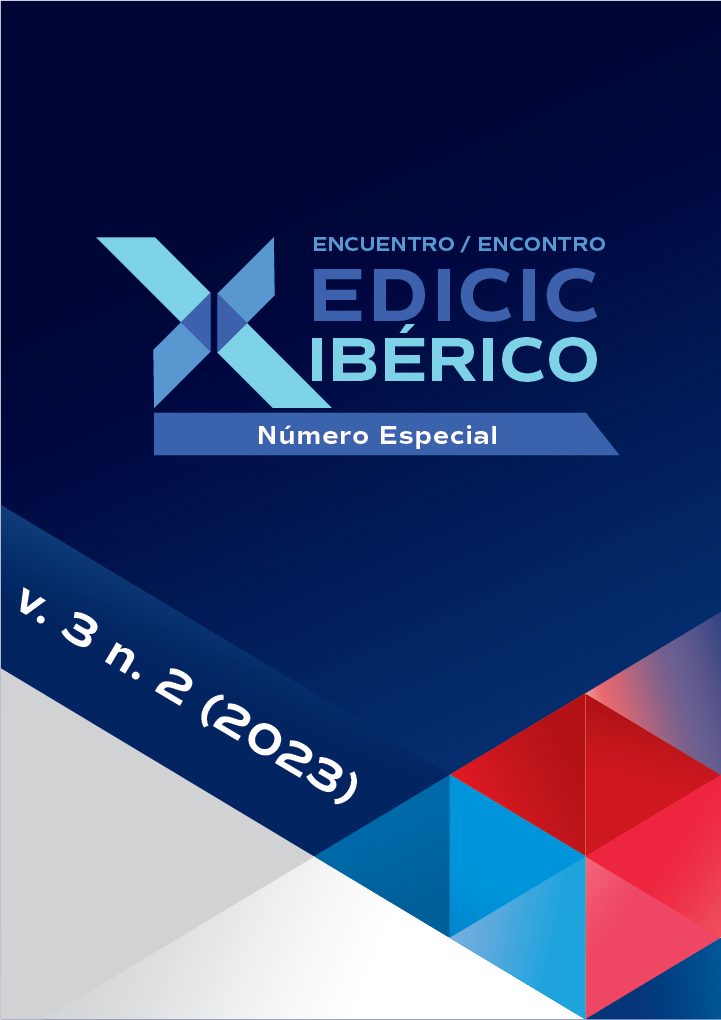The dillema between misinformation and freedom of speech
DOI:
https://doi.org/10.62758/re.v3i2.277Keywords:
Misinformation, Law, Freedom of SpeechAbstract
Combating disinformation has become a significant challenge these days, especially when faced with the principle of freedom of expression. While freedom of expression is a fundamental right that promotes the open exchange of ideas and access to information, the proliferation of false and misleading information raises serious questions. This relationship raises the following problem: what limits are necessary to protect society from disinformation? In this context, this work aims to analyze the relationship between freedom of expression and disinformation. It seeks to understand the limitations of freedom of expression in order to combat all types of misinformation. Qualitative descriptive and exploratory bibliographical research was used as methodological procedures. As a result, it was realized that the fight against disinformation only happens with the verification of facts and the responsible use of freedom of expression and, for this, regulatory measures are necessary, helping to combat the dissemination of false information, consequently preserving the principles democratic rights and individual rights. As final considerations, it was realized that it is necessary to promote public awareness about the importance of verifying facts and encouraging the responsible use of freedom of expression.
References
ABBOUD, G., & CAMPOS, R. (2018). A autorregulação regulada como modelo do Direito proceduralizado. ABBOUD, Georges; NERY JR, Nelson; CAMPOS, Ricardo. Fake News e Regulação. Col. Direito e Estado em Transformação, (1).
Assembleia Geral da ONU. (1948). "Declaração Universal dos Direitos Humanos" (217 [III] A). Paris. http://www.un.org/en/universal-declaration-human-rights/.
Fiss, O. M. (2005). A ironia da liberdade de expressão: estado, regulação e diversidade na esfera pública (G. Binenbojm & C. M. da S. Pereira Neto, Trans. & Pref.). Rio de Janeiro: Renovar.
Bobbio, N. (1995). O Positivismo Jurídico: Lições de Filosofia do Direito. Cone Editora.
Brasil. (1988). Constituição da República Federativa do Brasil de 1988.
Brasil. (2018). Lei nº 13.709, de 14 de agosto de 2018. Dispõe sobre a proteção de dados pessoais e altera a Lei nº 12.965, de 23 de abril de 2014 (Marco Civil da Internet). Brasília, DF: Presidência da República. http://www.planalto.gov.br/ccivil_03/_ato2015-2018/2018/lei/L13709.htm.
Breton, P. (1999). Manipulação da palavra (A). Edições Loyola.
Despacho Nº 652/2023/GAB-SENACON/SENACON. (2023, [data do despacho]). Assunto: Defesa do Consumidor: Cautelar Antecedente. Destino: DPDC. Interessado(a): GOOGLE BRASIL INTERNET LTDA (06.990.590/0001-23).
Dizikes, P. (2018). Study: On Twitter, false news travels faster than true stories. MIT News, 8.
Mill, J. S. (2002). On Liberty. Dover Publications.*On Liberty (mcmaster.ca).
Projeto de Lei do Senado n. 2630, de 2020. Institui a Lei Brasileira de Liberdade, Responsabilidade e Transparência na Internet documento (senado.leg.br).
Sarmento, D. (2006). A liberdade de expressão e o problema do “hate speech”. Sarmento Daniel. Livres e iguais: estudos de direito constitucional. Rio de Janeiro: Lúmen Juris. *A_Liberdade_De_Expressao_E_O_Problema_Do_Hate_Speech_1-libre.pdf (d1wqtxts1xzle7.cloudfront.net).
Supremo Tribunal Federal. (2021, 27 de agosto). Resolução nº 742: Institui o Programa de Combate à Desinformação no âmbito do Supremo Tribunal Federal. Res_742_2021_STF.pdf (stj.jus.br).
Tufekci, Z. (2017). Twitter and tear gas: The power and fragility of networked protest. Yale University Press.
Vidigal, F., & Marques, L. K. S. (2016). Redes Sociais como Fontes de Informação em Inteligência Competitiva: Uma abordagem a partir de métodos qualitativos. In Atas: Investigação qualitativa em ciências sociais (Vol. 3, pp. 407-416). https://proceedings.ciaiq.org/index.php/ciaiq2016/article/view/983.
Vosoughi, S., Roy, D., & Aral, S. (2018). The spread of true and false news online. science, 359(6380), 1146-1151. DOI: https://doi.org/10.1126/science.aap9559
Wardle, C., & Derakhshan, H. (2017). Information disorder: Toward an interdisciplinary framework for research and policymaking (Vol. 27, pp. 1-107). Strasbourg: Council of Europe.
Downloads
Published
How to Cite
Issue
Section
License
Copyright (c) 2023 Revista EDICIC

This work is licensed under a Creative Commons Attribution 4.0 International License.
The Association holds the copyright of the texts it publishes and, therefore, adopts a Creative Commons License, CC BY 4.0 DEED Attribution 4.0 International (https://creativecommons.org/
You are free to:
- Share: copy and redistribute the material in any medium or format for any purpose, even commercially.
- Adapt: remix, transform, and build upon the material for any purpose, even commercially.






